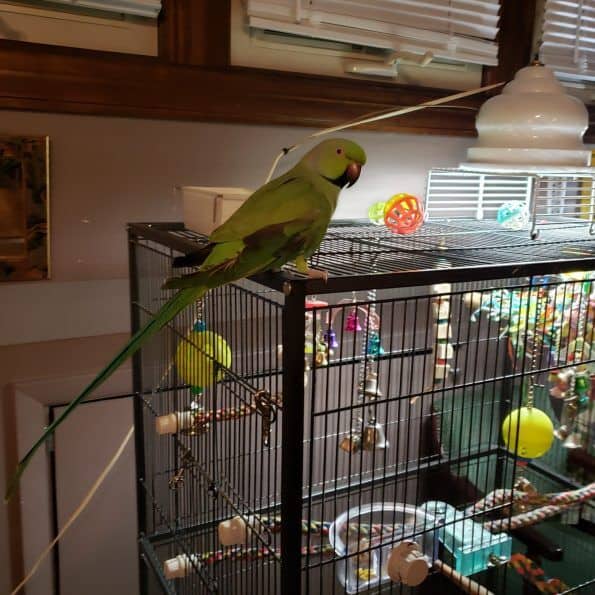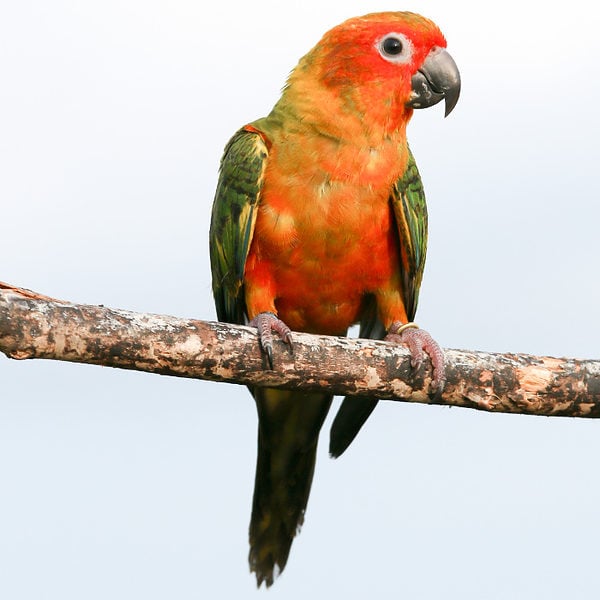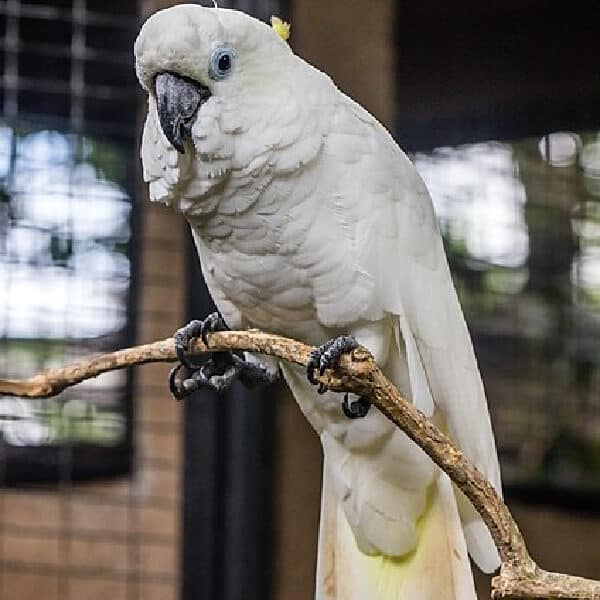Last Updated on by Mitch Rezman
Every time I try to get my new Congo grey to sit on my hand, he bites me.
How long do I have to keep getting bitten?
Biting is never acceptable.
Not from a bird, dog, cat nor any other pet (said the lion trainer).
Getting bitten solves nothing.
One of the questions we ask here is why is your bird aggressive?
In many cases this is a hormonal issue that can partially be controlled with light.
A bird with full-spectrum lighting placed 6 inches over its cage on a timer providing 12 hours of light and 12 hours of darkness will be a better-behaved bird.
All birds rely on circadian rhythms to help control many things like breeding and molting times.
North American light cycles are very confusing to birds that usually redesign in a narrow bandwidth of 40° North and 40° south latitude of the equator.
While you’re busy organizing birdcage lighting I would advocate immediately starting clicker training.
Here’s a brief video produced by a veterinarian providing an overview of clicker training.
When offering a favored treat during clicker training you can drop the treat into a food dish or use a millet spray which puts about 6 inches between the bird’s beak and your fingers.
Spend 5 to 10 minutes a day and you should be able to get your bird’s attention moving towards being able to offer the treats with your fingers.
The goal is to train the bird to recognize it will be rewarded for positive behavior.
The goal here is not to get the bird to sit on your hand, the goal is to not attempt to bite you.
It’s important also to determine what the biting triggers are.
It’s also very hard to diagnose problems such as these without knowing what kind of African gray you have there are Congo’s and there are Timnehs.
The age of the bird is also going to play an important role. African grays are rather unique in that they will usually bond with a single person poorly on at the age of one or two.
By the age of five or six, African grays will seek to bond with a different person. In the wild, this helps keep the flock from inbreeding where the birds don’t breed with a parent or a sibling.
In your case, it’s hard to say without knowing who else lives in your home, who the bird is currently fighting with it may not feel you.
I would discourage that you blow in your bird’s feathers, it is not useful and will only make them potentially over preen which could lead to feather plucking.
We also don’t know if your bird is flighted or clipped. In the wild birds have a flight or bite mentality. If your bird knows he cannot fly you may be setting it up for a pure biting mentality because it knows it cannot fly away to safety.
Written by Mitch Rezman
Approved by Catherine Tobsing
Author Profile
Latest entries
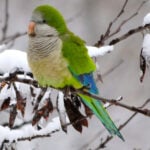 The Traveling BirdJune 26, 2025Can You Name 5 Parrot Species That Are Living Wild in the USA?
The Traveling BirdJune 26, 2025Can You Name 5 Parrot Species That Are Living Wild in the USA?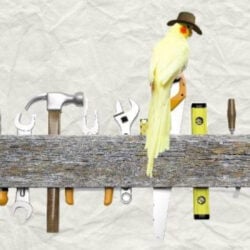 Bird BehaviorJune 26, 2025How is it Parrots Are Problem Solvers Social Animals and Even Use Tools?
Bird BehaviorJune 26, 2025How is it Parrots Are Problem Solvers Social Animals and Even Use Tools?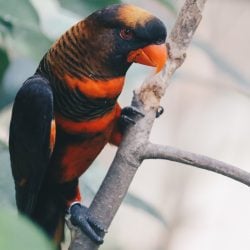 Bird & Parrot AnatomyJune 25, 2025How a Tiny Chemical Modification Makes Parrots Nature’s Living Paintings
Bird & Parrot AnatomyJune 25, 2025How a Tiny Chemical Modification Makes Parrots Nature’s Living Paintings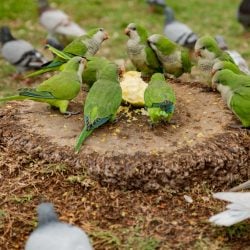 PigeonsJune 20, 2025How Do Parrots Thrive in Cities Outside Their Native Habitats?
PigeonsJune 20, 2025How Do Parrots Thrive in Cities Outside Their Native Habitats?

